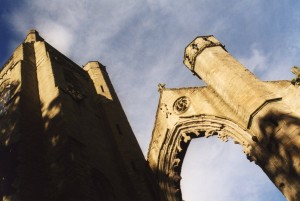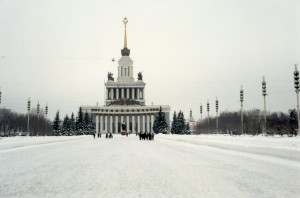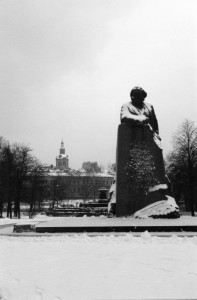 There’s much more about this over at NRO, but the response of some people at Yale to the invitation extended by the Buckley Program to Ayaan Hirsi Ali is worth noting here too.
There’s much more about this over at NRO, but the response of some people at Yale to the invitation extended by the Buckley Program to Ayaan Hirsi Ali is worth noting here too.
The Yale Daily News has some of the details:
Representatives from 35 campus groups and student organizations have signed a letter drafted by the Muslim Students Association (MSA) that expresses concern over an event that is bringing a controversial speaker to campus.
Ayaan Hirsi Ali — a Somali-born American activist known for her women’s rights advocacy and critical remarks about Islam — is slated to give a lecture titled “Clash of Civilizations: Islam and the West” on Sep. 15 as part of the William F. Buckley, Jr. Program speaker series. The daughter of a Somali politician and opposition leader, Hirsi Ali has publicly voiced criticism of practices such as female genital mutilation and has also voiced support for atheism and women’s rights. The MSA’s letter does not ask for a withdrawal of Hirsi Ali’s invitation, according to MSA board member Abrar Omeish ’17, but rather draws attention to her allegedly hurtful anti-Muslim statements and her lack of qualifications to speak broadly about Islam.
Because, of course, strong opinions (or, more accurately, strong opinions of the wrong sort) are not something that should be allowed to be expressed in today’s universities without a self-important little melodrama.
And then there’s the credentialism, that “lack of qualifications to speak broadly about Islam”. Credentialism has long been the hallmark of the intellectually desperate. That it now appears to flourish at Yale is disappointing, but, I suppose, in the degraded campuses of today, no longer surprising.
The Yale Daily News:
Omeish referenced a 2007 interview with the London Evening Standard, in which Hirsi Ali described Islam as a “destructive, nihilistic cult of death.”
Omeish said that the group and their Islamic values uphold freedom of speech.
“The difference here is that it’s hate speech, [which] under the law would be classified as libel or slander and is not protected by the First Amendment. That’s what we’re trying to condemn here.”
Hate speech? Libel? Slander? Not protected by the First Amendment? Really? If we’re playing the credentials game, perhaps Omeish would like to set out the qualifications she has that enable her to find that those words by Ali crossed some very specific legal lines. I can fully understand why she might disagree—and disagree profoundly—with what Ali said (indeed, I don’t agree with it myself), but, in asserting what she has done, Omeish has gone rather farther than that.
Back to the Yale Daily News:
After becoming aware of the Buckley Program’s plan to bring Hirsi Ali to campus, Omeish met with [Buckley Program president] Lizardo last week to discuss Hirsi Ali’s speaking engagement and the MSA’s requests. According to Omeish, the MSA never intended to disinvite Hirsi Ali, but instead requested the invitation of a second speaker with academic credentials on the subject. The MSA also asked that Hirsi Ali’s speech be limited to her personal experience and professional expertise.
But Lizardo responded that the Buckley Program would not adopt the MSA’s requests and would not change the format or content of the lecture.
“If the principle is freedom of expression and freedom of speech, then having someone there to correct her views, which is essentially what MSA would like to happen … would only hinder the principle or idea further of free speech,” Lizardo said.
Quite.
And then there’s this squalid intervention:
University Chaplain Sharon Kugler and Coordinator of Muslim Life Omer Bajwa issued a joint statement to the News in which they confirmed the University’s commitment to free expression but raised concerns over Hirsi Ali’s prior comments about Islam.
“We are deeply concerned … by Ms. Ayaan Hirsi Ali’s long record of disparaging, and arguably hateful, comments about Muslims and Islam,” the statement read. “To better represent the whole Yale community and its educational goals, we recommend the organizers consider actions to expand the event, such as allowing concerned students to present their perspectives or adding a scholarly voice to create a more nuanced conversation.”
Yale students would do well to understand that if they wish to learn about debate, tolerance, open-mindedness and a genuine respect for free speech, they should turn to some other place than the Chaplain’s Office.









